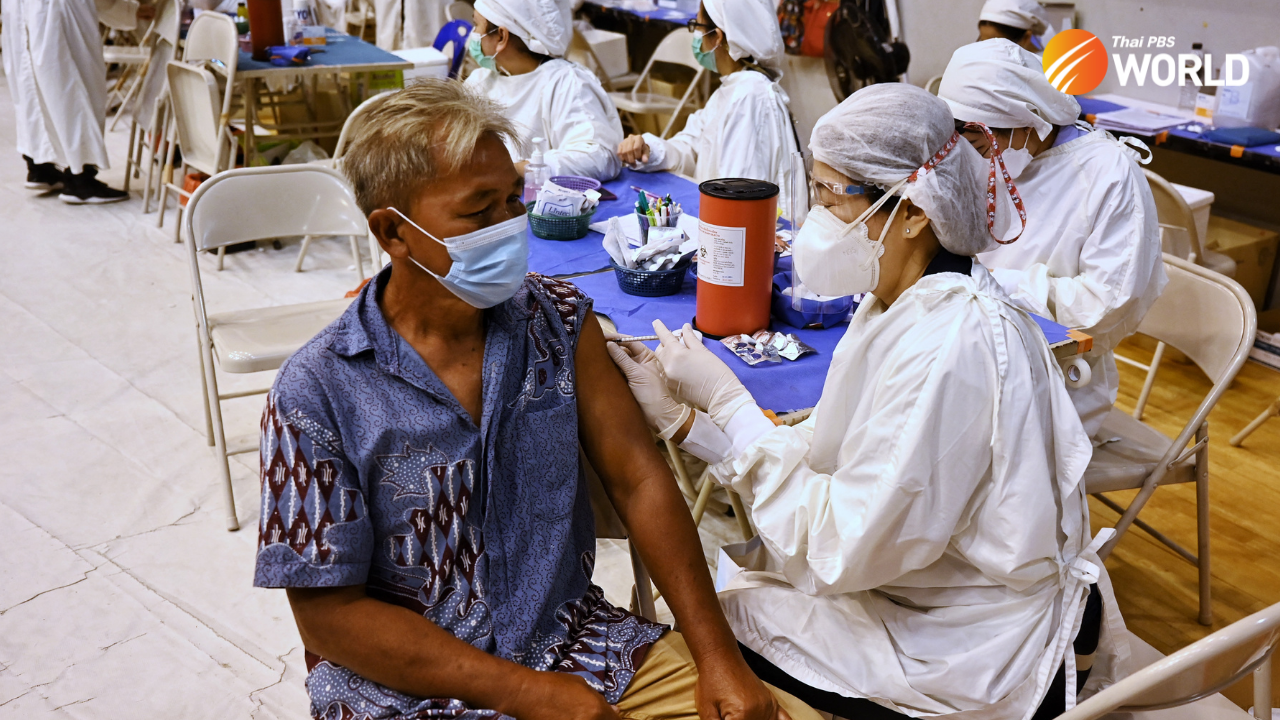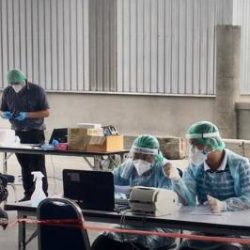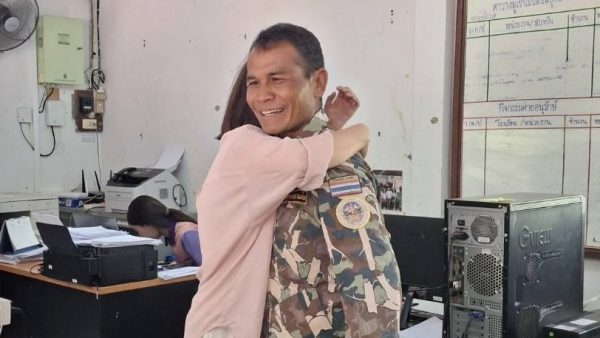Breaking down barriers to Covid-19 vaccination: Advice from a psychiatrist

The coronavirus pandemic continues to wreak havoc across many parts of the world including Thailand. The highly transmissible Delta variant of the novel coronavirus is spreading quickly, resulting in a surge of infection and hospitalization rates since the Songkran Festival.
Medical experts say vaccine-induced herd immunity – when enough people are immune, the virus will find it difficult to spread – is the best way to end the pandemic. Some scientists estimate that 70-75 percent of the population must acquire resistance to the coronavirus to banish it, though some experts in the US and UK have upped that figure to 90 percent in light of the Delta mutation.
However, Thailand is far from even 70 percent. According to statistics from the Department of Disease Control, as of July 30, more than 3.78 million Thai people or about 5.4 percent of the total population are fully vaccinated.
The Covid-19 vaccines are safe. They are also effective in reducing the risk of being hospitalized and dying. Everyone who is able to should get inoculated not just for their own sake but also to protect their family, other families in communities, and the country in general.
Despite the high rates of new cases in the country, many people remain reluctant to get the shots. No trust, no transportation, not tech-savvy … people cite a range of reasons for postponing or being unwilling to get the coronavirus vaccines.
Pornpimon (surname withheld) is struggling to convince her vaccine-hesitant mother of the importance of getting vaccinated. She finds it hard having conversations with her mother about it.
“It has been months since I talked with my mother about taking the shot. Each time I bring it up, she refuses it, citing adverse vaccine reactions and the side effects. Well, she’s read a lot of posts on social media about how many people fall sick because of the vaccine’s side effects. It’s exhausting. I’ve started to back off lately.”
“I’m concerned that she will fall victim to the virus. It’s spreading aggressively among the unvaccinated in the community where she lives. Getting vaccinated is good for her. It’s also good for people in the community and the wider population,” Pornpimon says.
First batch of Pfizer-BioNTech vaccines donated by US arrives in Thailand
The first batch of Pfizer-BioNTech COVID-19 vaccine donated by the U.S. government arrived in Thailand this morning (Friday), according to the U.S. Embassy in Bangkok.
Vaccine hesitancy partly stems from misinformation circulating online, says Dr. Apichat Jariyavilas, a psychiatrist and spokesperson for the Ministry of Public Health’s Department of Mental Health.
“It’s fair for people to have questions about the Covid-19 vaccines. Concerns about safety are common. The vaccines are so new. They are only approved for emergency use. Most people feel they have not been tested long enough,” he says.
This vaccine hesitancy is often supported and intensified by false messaging on social media, he adds. Many people succumb to fake news and misinformation about how vaccines work.
Medical personal and other experts provide the most reliable sources of information about the Covid-19 pandemic, but almost half (46.98%) of the population trust social media, according to the findings of an opinion survey by the Suan Dusit Poll.
The poll was carried out online during 19-22 July on 1,691 people throughout the country to gather their opinion on the flow of information about the Covid-19.
Talking with someone hesitant about getting the vaccine
Experts stress that getting vaccinated against Covid-19 matters. It’s the best tool to bring the pandemic under control, allowing us to get back to normal life.
Many people are in the same position as Pornpimon. And there’s still plenty of room for us to reach family and friends who have delayed getting the shots. Every effort counts when dealing with the coronavirus.
Here’s what the psychiatrist says about handling difficult conversations.
Dr. Apichat says the best approach to convincing someone to get the vaccine should begin with listening to what they’re concerned about. When we understand their concerns more clearly, we can create a meaningful discussion to explore how to address their worries.
“We can’t start convincing someone if we don’t know what the barrier is. Listen to them and hear where they are in their thinking. Avoid shaming them or making them feel like their concerns aren’t valid,” he says.
If the reluctance is rooted in misinformation, he adds, simply give accurate and correct information from reliable sources to them. If their concern is a bad reaction and side effects that someone else has experienced, discussing the facts around the statistics could help dispel their hesitancy.
“Also ask them for permission to provide information that would be meaningful to them. Remember to do it with care and compassion. And show that you care about their health and safety,” Dr. Apichat says.
Educating vaccine recipients is one of the best approaches people can take to fight hesitancy. Helping them to be open to learning more about the benefits of the vaccine to protect themselves and their communities is also of paramount importance, he adds.
“Make sure that it’s a two-way conversation. A lot of people are convinced over time from small bits of information that they absorb.”
For many, practical considerations play a role in their hesitation, according to Dr. Apichat.
“Seniors people may have difficulties doing online registration and making appointments or maybe they have trouble with transportation. Others may have trouble with child care,” he says.
Thai people wishing to get free vaccines provided by the government are required to sign up for them online through the Mor Prom app or the Thai Ruam Jai website.
However, a paid vaccination is another option.
Vaccine registration may be opening up, but securing an appointment has proven difficult. Logging in to get a vaccine appointment can take hours online and hundreds of refreshed screens on vaccine sites. For those who aren’t tech-savvy and don’t have the time, booking an appointment is nearly impossible.
People who have signed up and booked for Sinopharm, the country’s first alternative vaccine ordered by Chulabhorn Royal Academy, have complained about technical problems and the booking process.
“So, why don’t you just help them make an appointment and offer to drive them to vaccination sites. This can help move people to get the vaccines,” Dr. Apichat says.
Another good approach, he adds, is leading by example and getting vaccinated yourself. Then share your reasons for and experience with getting vaccinated.
“You can share the news of your shot and let people know how easy and safe the vaccination process is in order to support your position,” he says.
Personal connections can help change health behaviors, Dr. Apichat says. Close friends or someone with a strong relationship with the person you’re trying to persuade tend to have a lot of credibilities.
“People tend to trust more and be influenced by those in their close circles. If you don’t feel like you’re the best messenger for the conversation, it’s a good idea to encourage them to talk to someone they trust. In case of the vaccine, it might be a doctor, a nurse, or someone else who works in health care that they a connection with,” he says.
Dr. Apichat recommends approaching vaccine receipts in a supportive and respectful manner and urges patience and compassion when talking with others, especially seniors, about the vaccine.
“It’s often for personal reasons that people hesitate to get vaccinated. And we have to accept that people move at different paces. For many people, it’s a matter of time. Try to avoid insults and demeaning language that could ignite anger,” he says.
He also urges even fully vaccinated people to continue wearing masks and to keep taking other measures to prevent infection.
“Once you’ve been fully vaccinated, you may not actually be fully protected. So, continue to play it safe – avoid crowds, maintain social distance from others, wash your hands frequently and avoid sneezing or coughing around other people. Otherwise, you could end up as part of a transmission chain,” Dr. Apichat says.
by Veena Thoopkrajae with additional report by Sukhumaporn Laiyok






